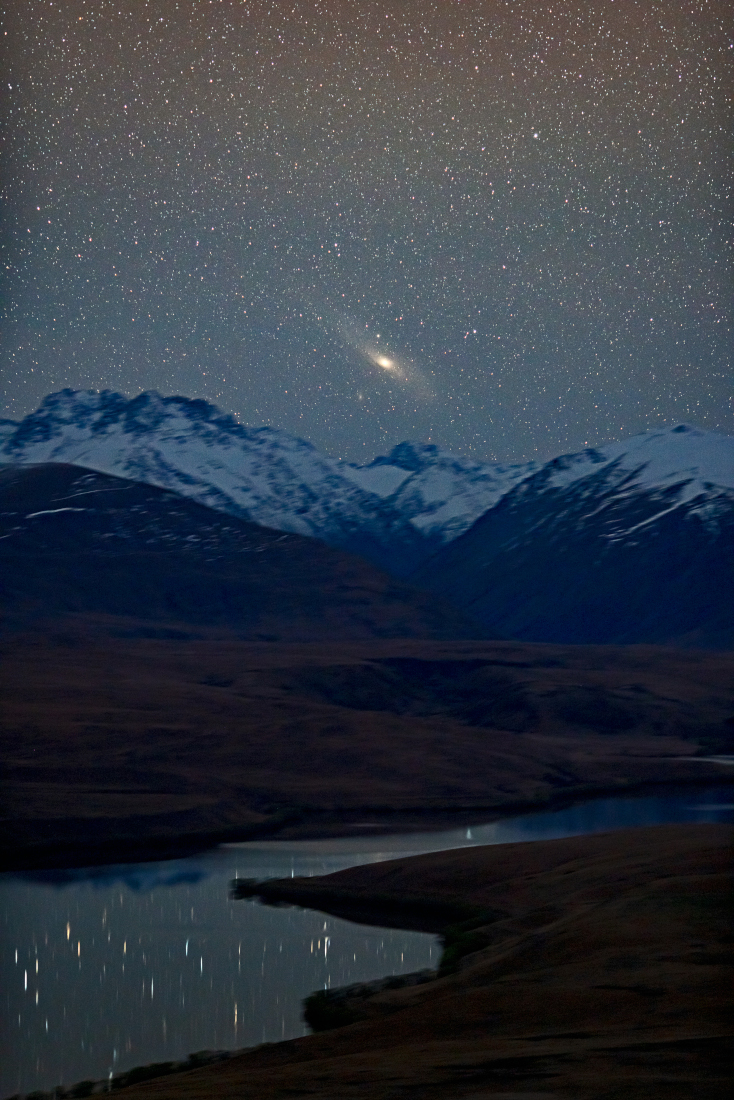Astronomy Picture of the Day
Discover the cosmos! Each day a different image or photograph of our fascinating universe is featured, along with a brief explanation written by a professional astronomer.
Image Credit & Copyright: Ian Griffin (Otago Museum)
Explanation: Looking north from southern New Zealand, the Andromeda Galaxy never gets more than about five degrees above the horizon. As spring comes to the southern hemisphere, in late September Andromeda is highest in the sky around midnight though. In a single 30 second exposure this telephoto image tracked the stars to capture the closest large spiral galaxy from Mount John Observatory as it climbed just over the rugged peaks of the south island's Southern Alps. In the foreground, stars are reflected in the still waters of Lake Alexandrina. Also known as M31, the Andromeda Galaxy is one of the brightest objects in the Messier catalog, usually visible to the unaided eye as a small, faint, fuzzy patch. But this clear, dark sky and long exposure reveal the galaxy's greater extent in planet Earth's night, spanning nearly 6 full moons.
Tomorrow's picture: light-weekend
Authors & editors: Robert Nemiroff (MTU) & Jerry Bonnell (UMCP)
NASA Official: Phillip Newman Specific rights apply.
NASA Web Privacy Policy and Important Notices
A service of: ASD at NASA / GSFC,
NASA Science Activation
& Michigan Tech. U.
This is an automated email. If you notice any problems, just send me a note at gtracy@gmail.com. You can add and remove email addresses to this distribution list here, https://apodemail.org.Unsubscribe

No comments:
Post a Comment